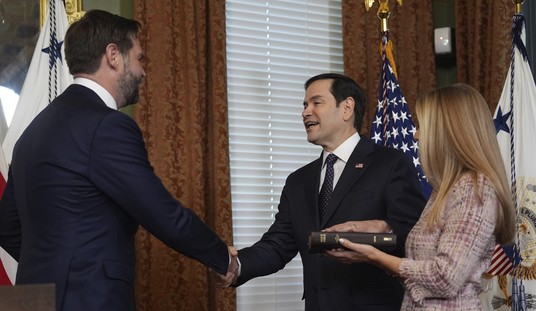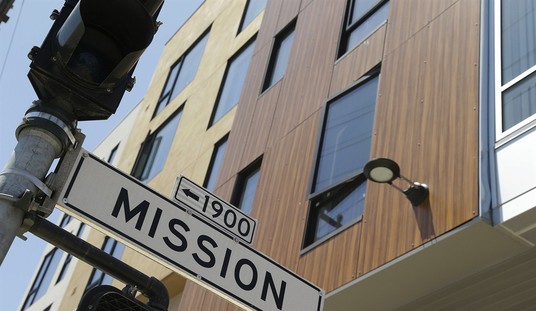Donald Trump’s tweet about the massive costs of replacing Air Force One prompted a pledge from Boeing to work with the new administration to deliver the best value for taxpayers. By working together, though, Boeing means that the government may need to adjust its expectations on the new pair of 747-8s. Nevertheless, Boeing execs are open to some bargaining, and they reached out to the transition team to make sure they knew it, Bloomberg reports:
Boeing Co. executives told officials on President-elect Donald Trump’s transition team that the cost of a new version of Air Force One could be lowered if the government agrees to reduce its requirements for the plane, people familiar with the discussions said.
The company’s executives reached out to Trump’s staff after the Republican said on Twitter on Tuesday that plans for a new Air Force One should be canceled because of “ridiculous” costs. The missive put in Trump’s sights both a plane that is one of the most visible symbols of the American presidency and a firm that is the nation’s largest exporter.
Just how much influence Boeing has on those costs is debatable. The problem is designing an air fortress, or two of them, in an era of terrorism by non-state actors that have increasing access to sophisticated arms. That means lots of money to make AF1s totally safe, and Boeing already is telling Trump and others that the path to a lower cost may mean a less-robust defensive platform:
“This is what an Air Force One costs,” Richard Aboulafia, an aerospace analyst at Teal Group, said of Trump’s tweet. “There have been no cost overruns. The ability to fly the president during a war is fundamentally expensive.”
The Boeing executives who contacted Trump officials suggested that the price of the new planes could be reduced if the Air Force and Secret Service revise their specifications for the aircraft, the people familiar with the discussions said. The company was not told in advance that Trump would tweet about the plane, the people said.
After the initial round of chin-pulling over Trump’s tweets, media outlets recalled that Barack Obama had similar reservations about presidential air transport, too. In his first few months, Obama demanded to know why costs for replacement Marine One helicopters had risen so sharply, and the Pentagon demanded a review of the program from Lockheed, who had the contract. Obama then canceled the replacements, calling the current Marine One “perfectly adequate to me.”
However, that move didn’t actually save taxpayers money, as ABC News reports this morning. In fact, it might have cost us more:
When the president made his remarks, the Pentagon had already initiated an automatic review of the program because the expected costs exceeded more than 50 percent of the original target price. Three months later, the Pentagon ordered Lockheed Martin Corp. to halt its work on the fleet. The government had already spent more than $3 billion on the aircraft when the work on the contract was stopped, according to reports at the time,
In 2014, the Navy awarded Sikorsky Aircraft, now owned by Lockheed Martin, a $1.24 billion contract to build a new fleet of VH-92A, which will replace the current helicopter fleet used by President Obama and other government officials. Lockheed says it will produce 21 operational and two test aircraft with full production expected to conclude in 2023.
So … we spent $3 billion on a Lockheed project to get no helicopters, and now will send $1.24 billion to Lockheed to finally replace Marine One in a couple of years. That doesn’t seem like a very good deal for taxpayers either. We might end up having the same result now, although thus far we have only allocated $169 million for preparatory work on the modifications that will be needed once the AF1 project gets final approval. The two planes that serve as AF1 now are 26 years old and are nearing the end of their productive life cycle as mission-critical platforms for the president, which the Secret Service sets at 30 years. We can cancel this deal and start negotiations over again, but that will likely write off the investment we have already put into it — and just as likely to have us end up in the same place we are now.
Still, on a $4 billion deal, a due diligence cost of $169 million may not be an entirely bad thing — if it delivers a deal which either makes up that cost or delivers a better product.








Join the conversation as a VIP Member